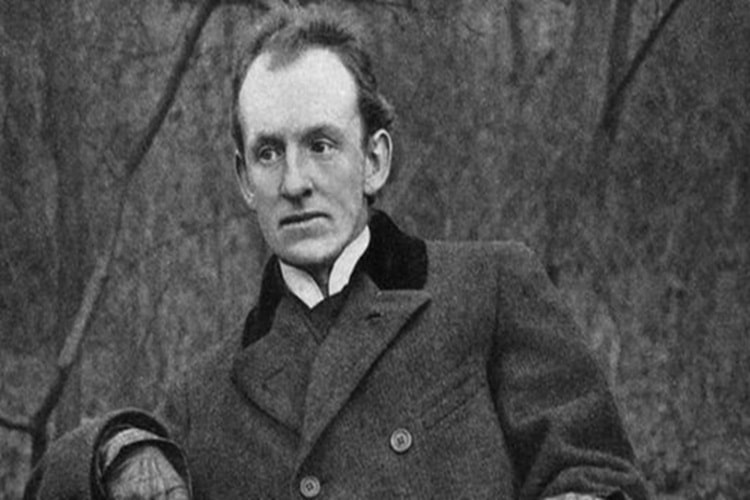Celebrating life and legacy of Gerhart Hauptmann

Gerhart Hauptmann (15 November 1862 – 6 June 1946) was a German dramatist and novelist. He was awarded the Nobel Prize in Literature in 1912.
Life and Career
Gerhart Hauptmann was born on November 15, 1862, in Obersalzbrunn, Prussia. He was the son of a hotelkeeper and grew up in a rural environment. Hauptmann showed an early interest in literature and art. After attending several schools, he later studied sculpture at the Royal Art School in Breslau (now Wrocław, Poland). Although Hauptmann showed an early interest in art, he gradually turned to writing. He started to read extensively and developed an interest in naturalistic literature. His education was mostly self-directed, involving extensive reading and studying various literary works that influenced his writing style.
Hauptmann became a pivotal figure in German literature, particularly known for his association with naturalism. He gained recognition for his plays and novels that depicted the struggles of the working class and the realities of life. His breakthrough came with the play “Vor Sonnenaufgang” (Before Dawn) in 1889, which established him as a significant playwright. He went on to write many other plays, including “Die Weber” (The Weavers) in 1892, which depicted a Silesian weavers’ revolt and became one of his most famous works.
Throughout his career, Hauptmann was associated with various literary movements and was influenced by different styles and philosophies, including naturalism, expressionism, and symbolism. He received the Nobel Prize in Literature in 1912 for his varied and outstanding contributions to German literature. Gerhart Hauptmann passed away on June 6, 1946, in Agnetendorf, Germany.
Award and Legacy
Gerhart Hauptmann was awarded the Nobel Prize in Literature in 1912. He received this prestigious honor for his varied and outstanding contributions to German literature. The Nobel Prize committee specifically highlighted his significant works that depicted the lives of the working class and his skill in portraying the human condition.
Hauptmann’s plays and novels were pivotal in the development of modern German literature. He was a central figure in the naturalist movement and later evolved his style to include elements of symbolism and expressionism. His works, such as “The Weavers,” addressed social issues and the plight of the working class. He depicted their struggles, hardships, and conflicts within society, which resonated deeply with audiences of his time. Hauptmann’s contributions to German theater were groundbreaking. His plays were performed widely and had a profound impact on the German stage. His experimentation with theatrical techniques and his focus on societal issues influenced the development of modern drama.
Hauptmann’s exploration of the human condition and his portrayal of everyday life helped shape the direction of European literature. His use of naturalistic elements and symbolic depth influenced later generations of writers. Hauptmann’s legacy extends beyond literature. He captured the spirit and struggles of the time in his works, leaving a lasting cultural and historical impact on the understanding of late 19th and early 20th-century society.
Observer Voice is the one stop site for National, International news, Sports, Editor’s Choice, Art/culture contents, Quotes and much more. We also cover historical contents. Historical contents includes World History, Indian History, and what happened today. The website also covers Entertainment across the India and World.

